Publications
Articles, publications, books, tools and multimedia features from the U.S. Institute of Peace provide the latest news, analysis, research findings, practitioner guides and reports, all related to the conflict zones and issues that are at the center of the Institute’s work to prevent and reduce violent conflict.
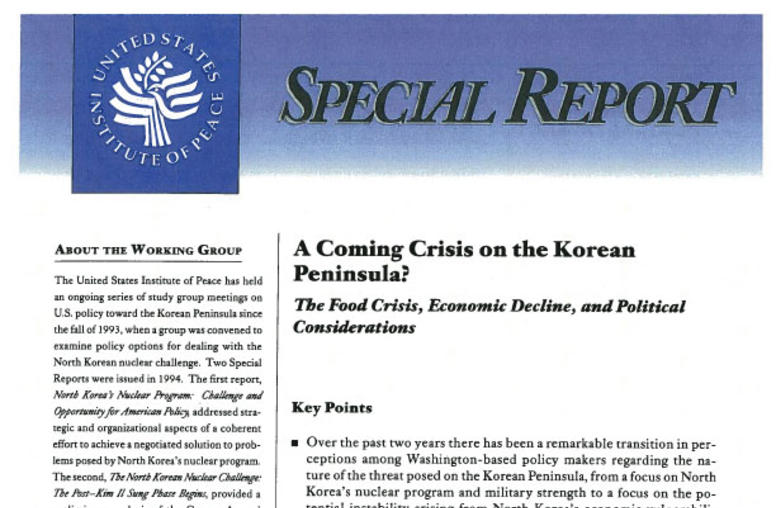
A Coming Crisis on the Korean Peninsula? The Food Crisis, Economic Decline, and Political Considerations
Over the past two years there has been a remarkable transition in perceptions among Washington-based policy makers regarding the nature of the threat posed on the Korean Peninsula, from a focus on North Korea's nuclear program and military strength to a focus on the potential instability arising from North Korea's economic vulnerabilities and political uncertainties. The major challenge for the United States is to pursue its strategic objectives in Northeast Asia by dealing with the prospect...
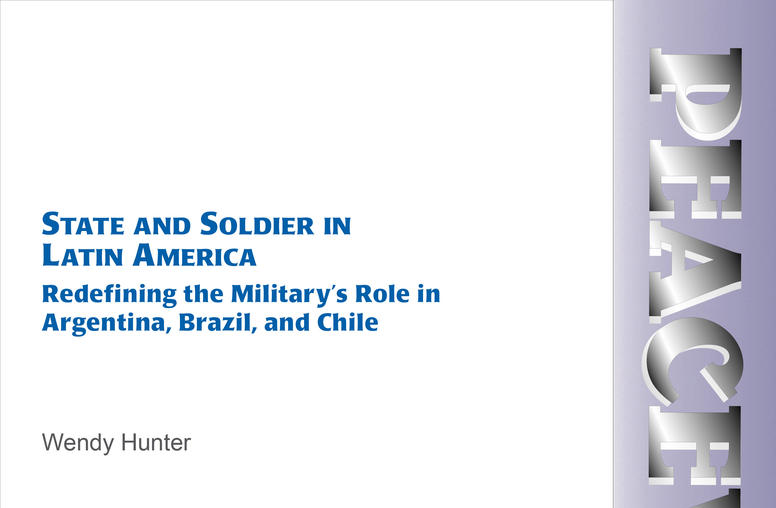
State and Soldier in Latin America: Redefining the Military's Role in Argentia, Brazil, and Chile
Recent years have given rise to an intense debate about appropriate roles for Latin America's armed forces: Should they remain the guardians of political stability, or should they restrict themselves mainly to external defense?
Truth Commission: Ecuador 96
Truth Commission: Truth and Justice Commission Duration: 1996 - 1997 Charter: Ministerial Accord No. 012 Commissioners: 7 Report: No report issued
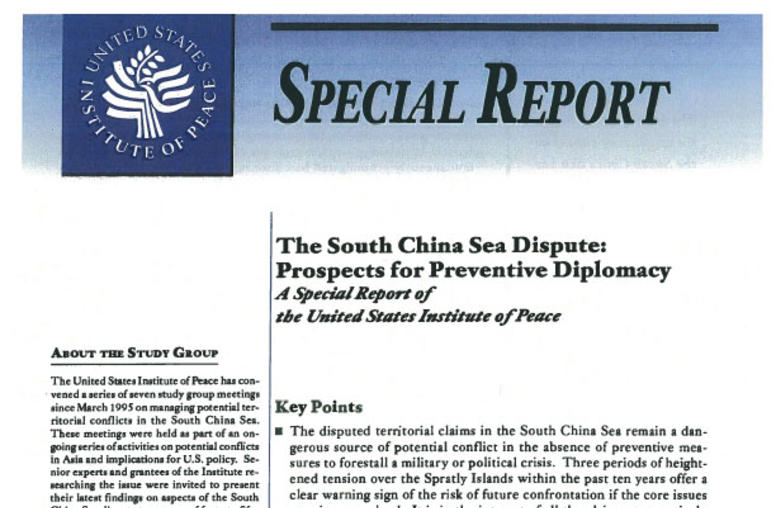
The South China Sea Dispute: Prospects for Preventive Diplomacy
The United States Institute of Peace has convened a series of seven study group meetings since March 1995 on managing potential territorial conflicts in the South China Sea. These meetings were held as part of an ongoing series of activities on potential conflicts in Asia and implications for U.S. policy. Senior experts and grantees of the Institute researching the issue were invited to present their latest findings on aspects of the South China Sea dispute to a group of forty to fifty specia...
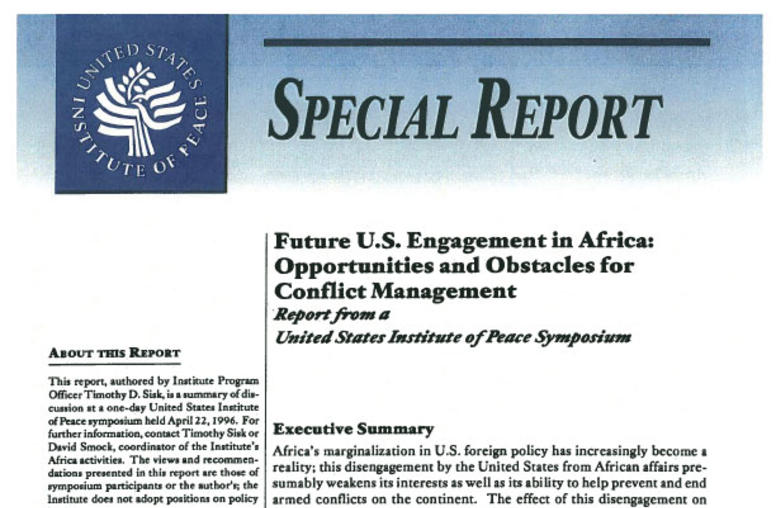
Future U.S. Engagement in Africa Opportunities and Obstacles for Conflict Management
Africa's marginalization in U.S. foreign policy has increasingly become a reality; this disengagement by the United States from African affairs presumably weakens its interests as well as its ability to help prevent and end armed conflicts on the continent.
Peace Operations and Common Sense: Replacing Rhetoric with Realism
The shortcomings of several recent peace operations have led many people to conclude that the whole concept is flawed and has little bearing on U.S. interests. The record, however, suggests that peace operations have not only reduced instability in many parts of the globe but have also been something of a minor boon to U.S. foreign policy.
Peace Operations and Common Sense
The shortcomings of several recent peace operations have led many people to conclude that the whole concept is flawed and has little bearing on U.S. interests. The record, however, suggests that peace operations have not only reduced instability in many parts of the globe but have also been something of a minor boon to U.S. foreign policy. It is necessary to confront this strange gulf between Washington perceptions and reality. Denis McLean, a New Zealander, is currently Warburg Professor ...
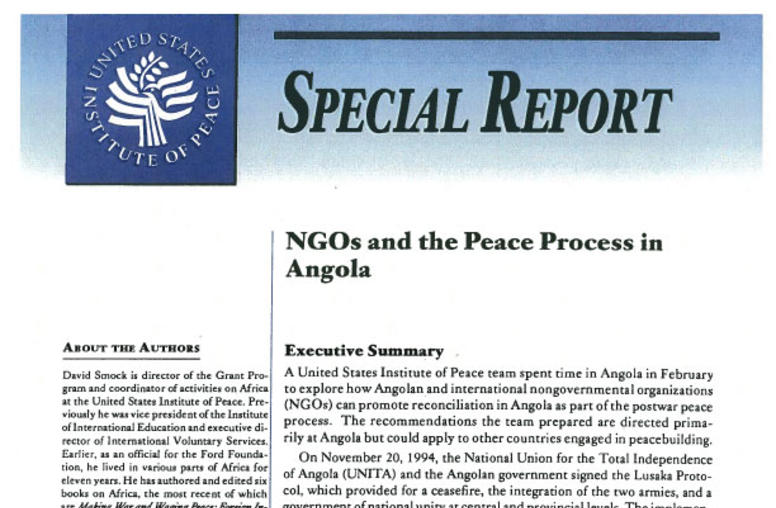
NGOs and the Peace Process in Angola
A United States Institute of Peace team spent time in Angola in February to explore how Angolan and international nongovernmental organizations (NGOs) can promote reconciliation in Angola as part of the postwar peace process. The recommendations the team prepared are directed primarily at Angola but could apply to other countries engaged in peacebuilding.
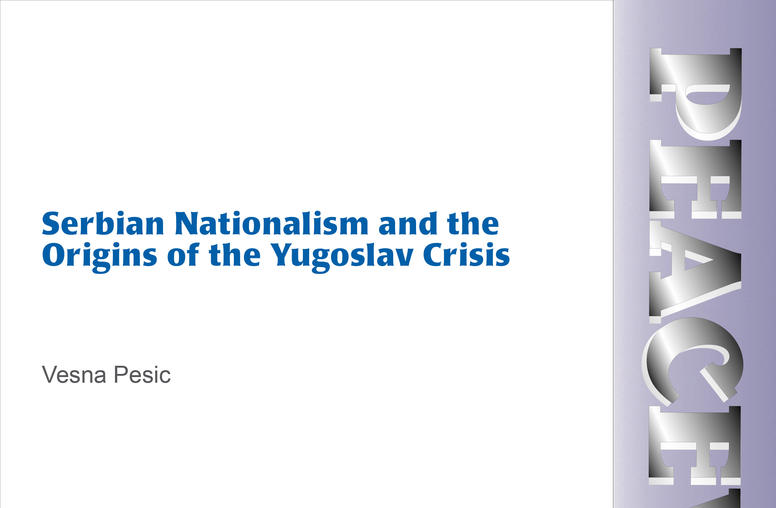
Serbian Nationalism and the Origins of the Yugoslav Crisis
The dissolution of multinational communist federations and the ensuing armed conflicts that have emerged with their transformation into independent nation-states have returned the "national question" (i.e., the relationship of a national or ethnic group to a state that includes multiple ethnic groups within its territory) to the forefront of debates over international politics, law, and theory.
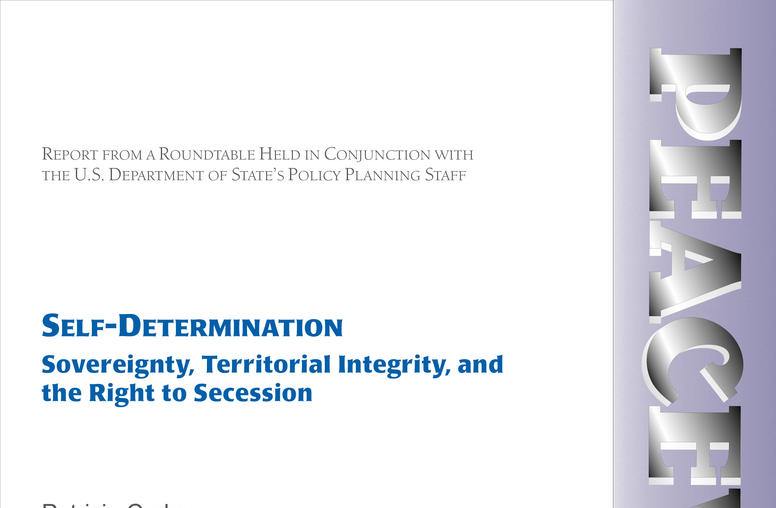
Self-Determination: Sovereignty, Territorial Integrity, and the Right to Secession
The right to self-determination has become one of the most complex issues for U.S. foreign policymakers and the international community at large.